Keeping tradition alive, in hopes to one day return home to Crimea
A map of Crimea is drawn on the blackboard as a teacher educates students on the history of this state. Children, 8 and 9 years old, carefully take notes as some raise their hands to ask questions. This school is a program run by the non-profit, Krymska Rodyna, and hosts lessons every Saturday on all Crimean Tatar traditions. From history lessons to dance lessons, classes are offered to youth starting as early as 4 years old to adults.
Five years ago this month Crimea was occupied by Russia, and conflict broke out in eastern Ukraine, causing 1.5 million persons to be displaced. Many, including Crimean Tatars, fled to major cities, such as Odesa, Lviv, and Kyiv, thus starting new lives.
Anife Kurtseitova, 37, has been an activist fighting for the rights of the Crimean Tatar community. A strong advocate, she has participated in numerous interviews, educating others about her culture, and hosted fundraising campaigns for Crimean children of political prisoners. She decided not to let tragedy determine the fate of her community.
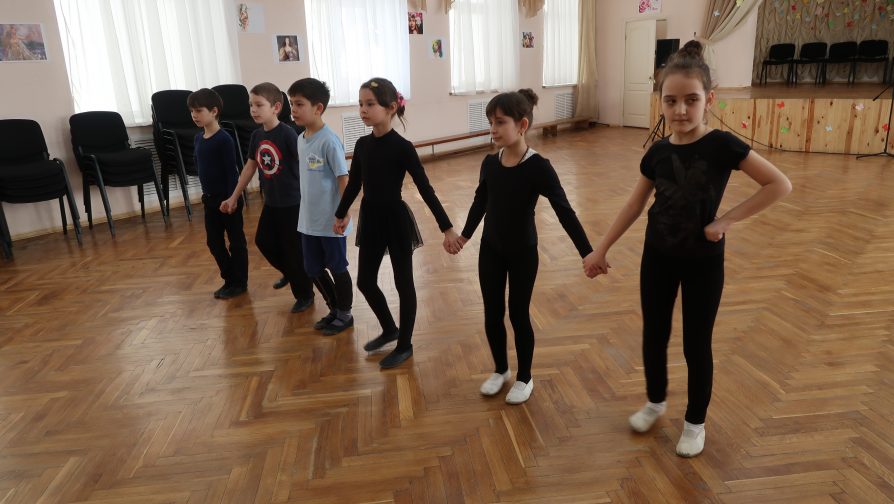
Building an NGO organization after moving to Kyiv, she began a Saturday school program focusing on all things relating to the Tatar culture. While negotiating with the Department of Education , she managed to arrange the permission to use several premises on the basis of one school in Kyiv during the time free from classes.
Parents and all community of IDPs from Crimea hope that the city authorities will pay attention to the successful activities of NGO and will provide premises for the creation of a unique Crimean-Tatar center for children. Given the fact that over the last year the number of visitors to the center has doubled. Currently, there are 100 pupils and about 50 families, who would like to join the school because there are nothing similar in Kyiv.
The children are divided by age, covering specific categories; dance lessons, music lessons, history lessons, and even the Tatar language. Traditional Tatar embroidery classes are also offered for adults. The students also host public dance performances in traditional costumes.
Running up and down the stairs speaking to mothers who are helping her coordinate the classes, Anife quickly caters to each teacher’s needs. In the waiting room, parents laid out cakes and desserts as they laughed and shared stories about their children. Everyone knew everyone, and the parents were just as dedicated as Anife in keeping the program running.
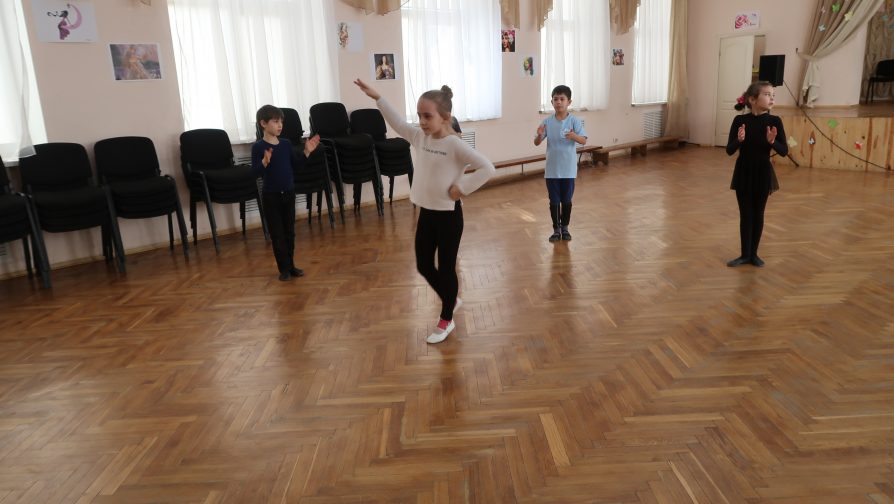
“It is important for me to keep our traditions and languages alive. We are waiting when the Crimean occupation will be over and all these families will be able to come back home,” says Anife.
Though it is unknown when this day will come, Anife refuses to give up hope, finding creative ways to keep the spirit of her heritage alive. Her pride represents leadership, and with her guidance the Tatar community became a team. With their efforts, their culture will live on to future generations regardless of any difficulty.
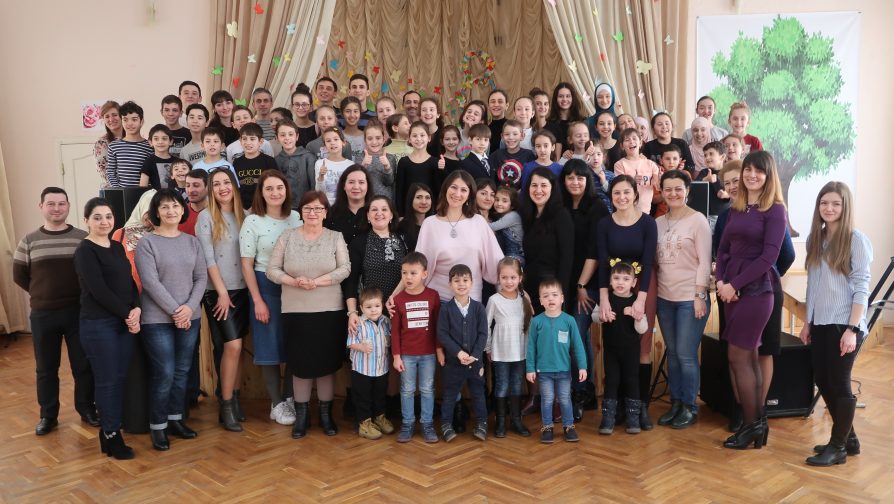
Community-based approach a core to protection and transcends to UNHCR’s work with displaced population. UNHCR Ukraine protection strategy is built on strengthening community based protection mechanisms initiated by the IDPs and host community to identify and respond to protection needs and create coping mechanisms.
UNHCR Ukraine community based protection activities included regular dialogue and communication with IDPs through protection monitoring and Participatory Assessment and Support to small community initiatives. The project was aimed at enhancing capacity of the NGO consisted of initiative of Crimean Tatar IDPs to provide activities for Crimean Tatar children aimed at maintaining their ethnic identity and cultural traditions on the mainland of Ukraine. In 2015 and 2016 UNHCR provided technical assistance (microphones and audio system) and 10 stage outfits for children to the NGO for conduction of classes of Crimean Tatar music, vocal and dancing for the children.
Page 14 of 35
-

UNHCR helps displaced people recover after the missile attack in Dnipro
25 Aug 2022Thanks to the support from Japan, UNHCR Ukraine was able to deliver immediate aid to people affected by fighting
-
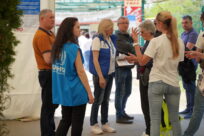
‘I am you and you are me’: UNHCR staff draw on first-hand knowledge of displacement
20 Aug 2022On World Humanitarian Day, we talked to three colleagues whose own experience of being forced to flee their homes inspires and informs their work.
-
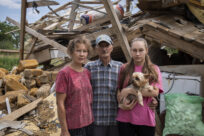
Ukrainian village torn apart by war begins long process of rebuilding
17 Aug 2022After deadly attacks left much of rural Nalyvaikivka in ruins, UNHCR is helping local families with temporary housing and construction materials as they look to rebuild.
-
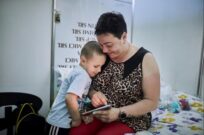
UNHCR survey finds refugees from Ukraine hope to go home
13 Jul 2022Refugees will need continued support until they are able to return.
-
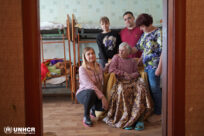
UNHCR’s cash assistance programme supports four generations in Ukraine
27 Jun 2022Lilia and her family, like over 533,000 other internally displaced people (IDPs) have enrolled in UNHCR’s cash assistance programme funded by donors including the EU Humanitarian Aid.
-

‘I just can’t stand aside if I know that I can help’
23 Jun 2022Disability rights activist Tetiana Barantsova escaped the war in Ukraine in a wheelchair. Now she’s helping others with disabilities to do the same.
-

‘When you open your home, you open your heart’
21 Jun 2022Iryna Morykvas reflects on how fleeing Ukraine with her son changed her perspective on love, peace and safety – and inspired her to design this year’s World Refugee Day emoji.
-
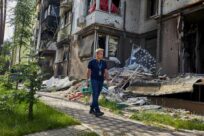
UNHCR Goodwill Ambassador Ben Stiller on World Refugee Day visits Ukraine, calls for solidarity with people affected by the war against Ukraine
20 Jun 2022Mr. Stiller came to Ukraine to see the scale of destruction and hear first-hand from people who have directly experienced the impact of the war, had to flee from their homes and who are now trying to rebuild their lives.
-
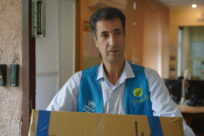
“Ukraine is my family; I need to be here to help,” says Abbas, a former refugee and now a social worker
20 Jun 2022UNHCR, together with CF Rokada and other partner NGOs, continues to respond to Ukraine’s enormous needs with funding from donors such as the United States.
-
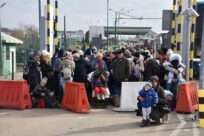
World Refugee Day 2022: New Ipsos survey shows greater compassion for forcibly displaced as war in Ukraine wears on
17 Jun 2022A NEW global study carried out in 28 countries by Ipsos for World Refugee Day shows that: Three in four adults on average across the countries surveyed agree with the principle that people should be able to take refuge in other countries to escape war or persecution, and attitudes toward […]
